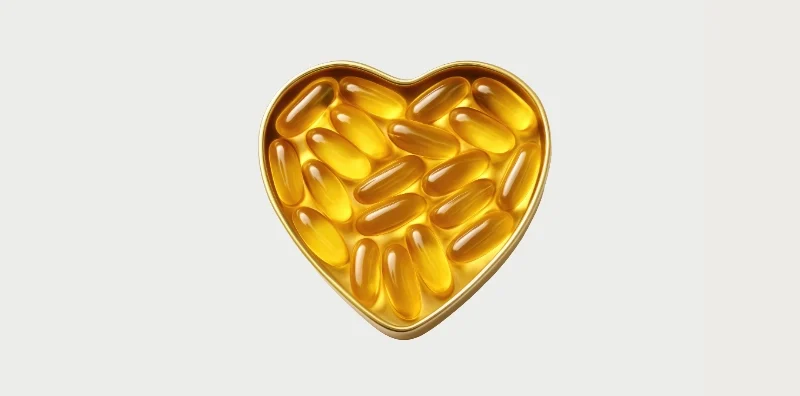A recent article has suggested that omega-3 fatty acids are associated with an increased risk of atrial fibrillation, commonly termed as A-fib (1). A-fib occurs when you develop a fast and irregular heartbeat in the two upper chambers of the heart. The development of A-fib may potentially lead to clot formation if blood pools in the heart’s upper chamber. However, a far more dangerous condition is ventricular arrhythmias. These are irregular heartbeats in the heart’s lower chambers that can lead to sudden death. As the authors of the published study point out, omega-3 fatty acids seem to reduce ventricular arrhythmias (2,3).
To determine the strength of the article’s conclusion about omega-3 fatty acids increasing A-fib, I did a deep dive into the Supplemental data of the article that nobody usually reads. But, as usual, the devil is in the details. First and foremost, there were significant differences in the molecular composition of the omega-3 fatty acid products compared in the study. For example, one study used an ethyl ester product consisting of pure EPA with no DHA. The second group of studies was composed of ethyl esters with a combination of EPA and DHA, and the third group was a free fatty acid product consisting of both EPA and DHA.
In the Supplemental section, the only two studies that demonstrated a statistical significance for increased A-fib either used only the EPA ethyl ester or the free fatty acid form of EPA and DHA. It has been shown that using the EPA-only ethyl ester product reduces the levels of DHA. (4) This is important since many important resolvins (the hormones that turn off inflammation) come from DHA. Therefore, reducing DHA levels in the blood would also reduce the potential formation of DHA-based resolvins. The free fatty acids are highly prone to oxidation compared to ethyl esters, increasing oxidative stress that can increase A-fib. Removing these two studies of the five presented makes their conclusions much weaker, if not non-existent.
Another aspect is that atrial fibrillation is only a problem if the clot forms in the heart’s upper chambers. That is unlikely to occur if one is consuming high-dose omega-3 fatty acids (5). Therefore, the possibility of developing a clot even if atrial fibrillation did develop is improbable.
So, the supportable conclusion I draw from this article is that you should only use ethyl ester products that contain both EPA and DHA for optimal cardiovascular results. Do not use free fatty acid EPA and DHA products, nor use ethyl ester products consisting of only EPA and containing no DHA.
References
- Lombardi M et al. Omega-3 fatty acids supplementation and risk of atrial fibrillation: an updated meta-analysis of randomized controlled trials. Eur Heart J Cardiovasc Pharmacother 2021 doi: 10.1093/ehjcvp/pvab034.
- Lombardi M et al. Impact of different doses of omega-3 fatty acids on cardiovascular outcomes: a pairwise and network meta-analysis. Curr Atheroscler Rep 2020; 22:45.
- GISSI-Prevenzione Investigators. Dietary supplementation with n-3 polyunsaturated fatty acids and vitamin E after myocardial infarction: Results of the GISSI-Prevenzione trial. Lancet 1999;354: 447–455.
- Braeckman RA et al. “Icosapent ethyl: Effects on plasma and red blood cell fatty acids.” Prostagl Leuko Essen Fatty Acid 2013; 89: 195-201.
- Tremoli E et al. Prolonged inhibition of platelet aggregation after n-3 fatty acid ethyl ester ingestion by healthy volunteers. Am J Clin Nutr 1995; 61: 607-13.






